Burrow into Luke 15:11-32's Prodigal Son parable with insightful Bible study questions, unveiling profound lessons about forgiveness, reconciliation, and familial love.
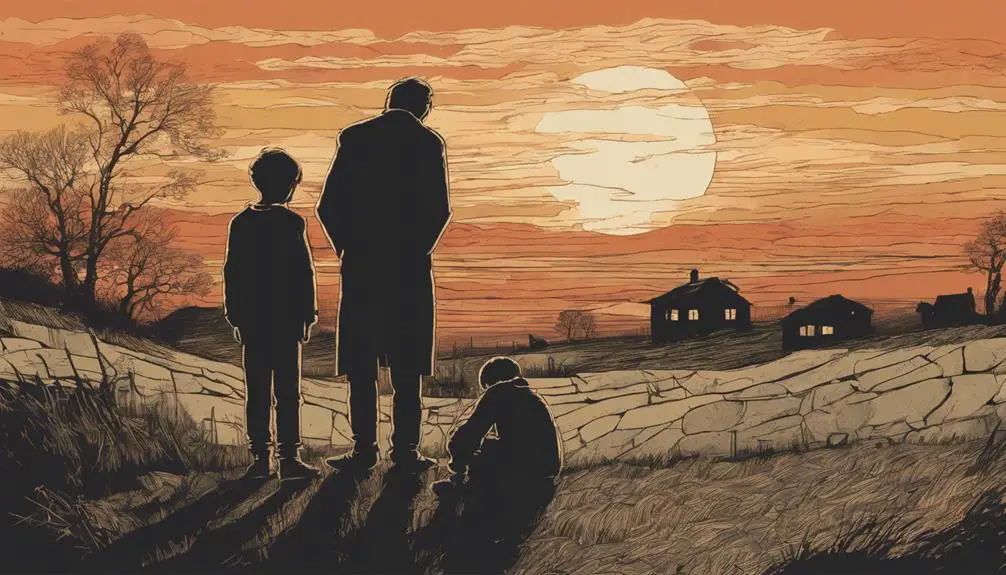
Luke 15:11-32 Bible Study Questions
Like a miner seeking precious gems, you've set out to dig deep into Luke 15:11-32, a passage known for its rich parable of the Prodigal Son. This parable, filled with diverse characters and profound lessons, begs to be thoroughly examined.
Why did the son leave his father's house? What can we learn from the father's forgiveness? What's the significance of the elder brother's reaction? As you ponder these questions, you'll discover that there's more to this story than meets the eye.
So why not grab your metaphorical shovel and start unearthing the treasures within?
Key Takeaways
- Understand the historical and cultural context of Luke 15:11-32, including the society's patriarchal and agrarian structure.
- Analyze the diverse characters in the narrative, their actions, and the themes of human fallibility and divine mercy.
- Explore the actions of the prodigal son, his journey of transformation, and the themes of repentance and forgiveness.
- Examine the elder brother's attitude, the dangers of resentment and self-righteousness, and the importance of embracing forgiveness.
Understanding Luke 15:11-32 Context
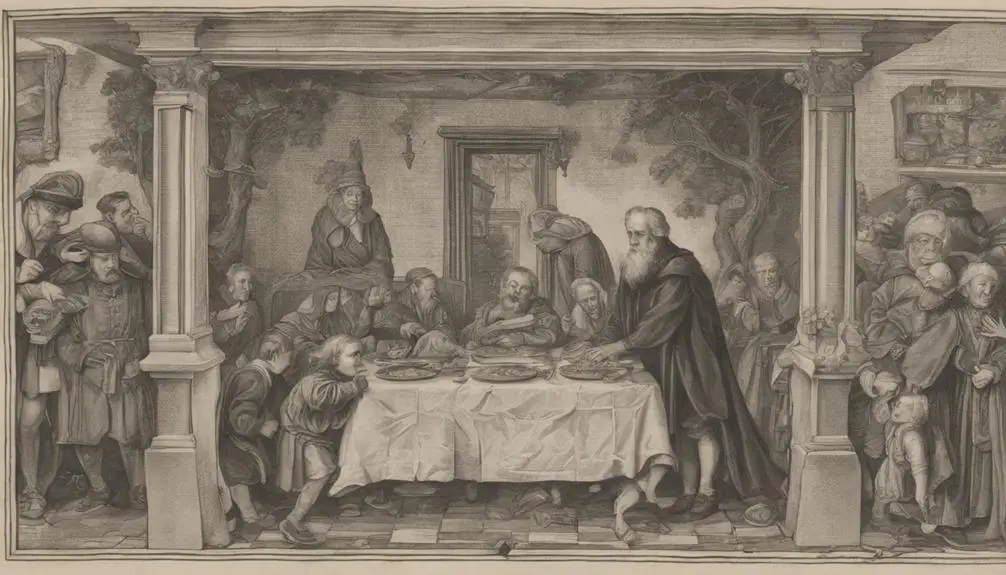
Often, to fully grasp the profound messages embedded in Luke 15:11-32, it's essential to delve into the historical and cultural context of this parable. You must comprehend the socio-political milieu of the 1st century Mediterranean world, where the parable was both conceived and delivered.
The parable, known as the Parable of the Prodigal Son, is inherently Jewish, yet it was told to a mixed audience of tax collectors, sinners, Pharisees, and scribes. This diverse audience holds significance, highlighting Jesus' inclusive message. You should note that the parable is set in a patriarchal, agrarian society, where honor and shame were pivotal social currencies.
Understanding the family dynamics in this context is key. The younger son's request for his share of the inheritance was a grave insult to the father, equivalent to wishing him dead. This cultural nuance gives weight to the father's forgiving response, making it profoundly counter-cultural.
The parable's setting within Luke's Gospel is equally important. It's the third in a series of parables about lost things, succeeding the Parable of the Lost Sheep and Lost Coin. This thematic continuity underscores the joy in finding what was lost, a central theme of Jesus' ministry.
Key Characters Analysis
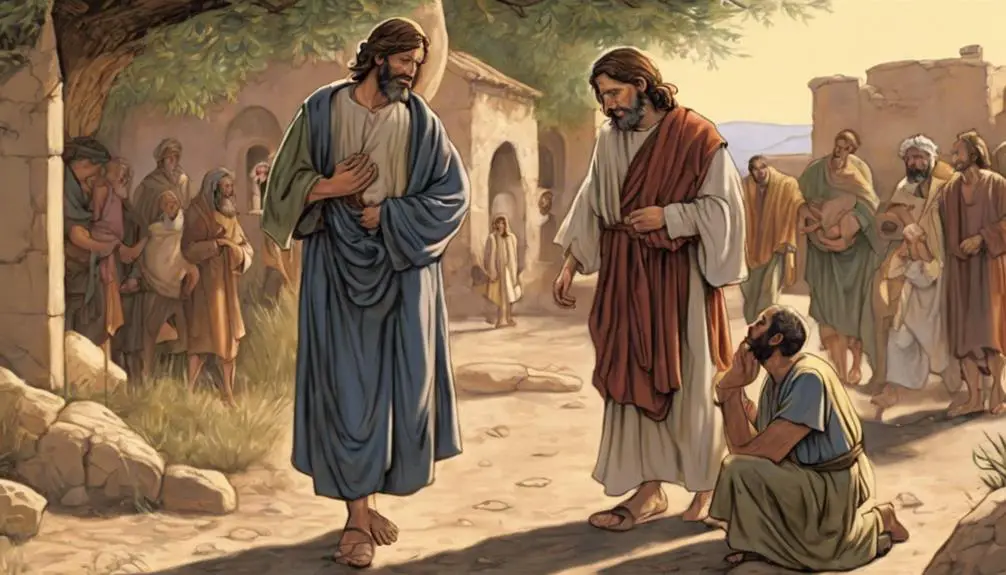
In analyzing the key characters of the Parable of the Prodigal Son, you'll uncover profound insights about the human condition and divine grace. The parable centers around three figures: the father and his two sons.
The father figure is a representation of God's unconditional love and forgiveness. He doesn't hold grudges, but warmly welcomes back his wayward son. The father's behavior contrasts starkly with societal norms, emphasizing the transformative nature of divine grace.
The younger son's actions are marked by disrespect and selfishness. His request for his inheritance signifies not only a desire for independence but a rejection of his father's authority. His subsequent squandering of his wealth in a distant land symbolizes the spiritual bankruptcy that accompanies a life led away from God.
The elder son, though outwardly obedient, harbors resentment and a lack of understanding of his father's grace. His anger towards his prodigal brother reveals a self-righteous attitude and a lack of compassion, mirroring the judgmental attitudes often found in religious communities.
These characters present a compelling study of human fallibility, divine mercy, and the tensions between societal expectations and spiritual truths.
Interpreting the Prodigal Son's Actions
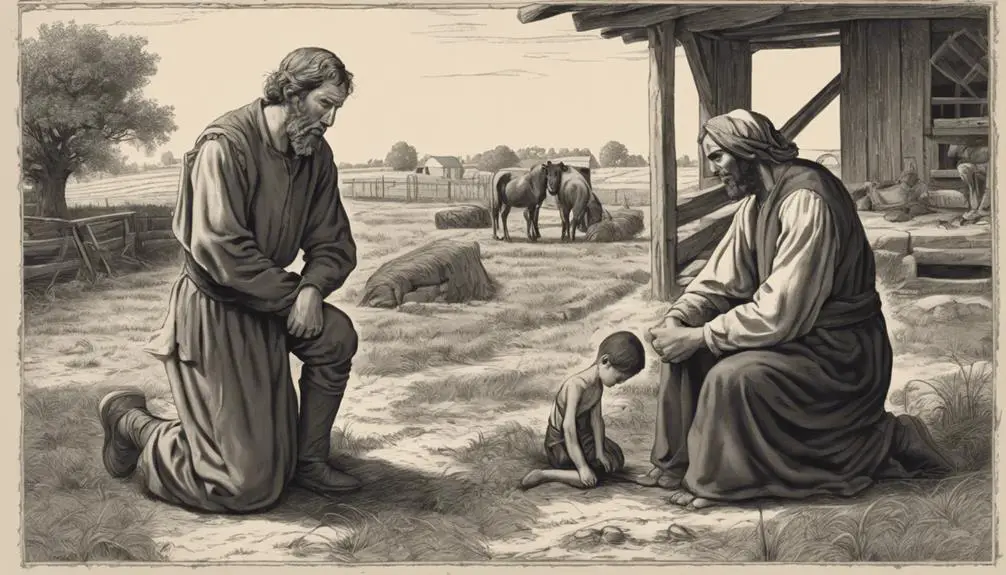
Delving into the actions of the prodigal son, you'll find a vivid portrayal of recklessness, rebellion, and eventual repentance. His initial actions of requesting his inheritance prematurely, then squandering it on a life of indulgence, exemplify a defiant attitude towards traditional norms and values.
However, it's necessary to look beyond these obvious transgressions. The son's actions also reveal a deeper craving for independence and self-determination. He isn't merely seeking financial gain; he's attempting to define his own destiny, separate from his father's influence.
But this rebellion proves disastrous. The son's reckless spending leads to financial ruin, and he finds himself in a humiliating situation—feeding pigs and longing to eat their food. This is a poignant symbol of his moral and spiritual degradation, illustrating the destructive consequences of his choices.
Yet, in the depth of his misery, the son experiences an awakening. He realizes his folly and decides to return home, humbled and repentant. His actions here provide a powerful illustration of the human capacity for self-reflection and transformation. Despite his past transgressions, the son's decision to return home signals a willingness to acknowledge his mistakes and seek reconciliation—underscoring the enduring themes of repentance and forgiveness in this parable.
Unpacking the Father's Response
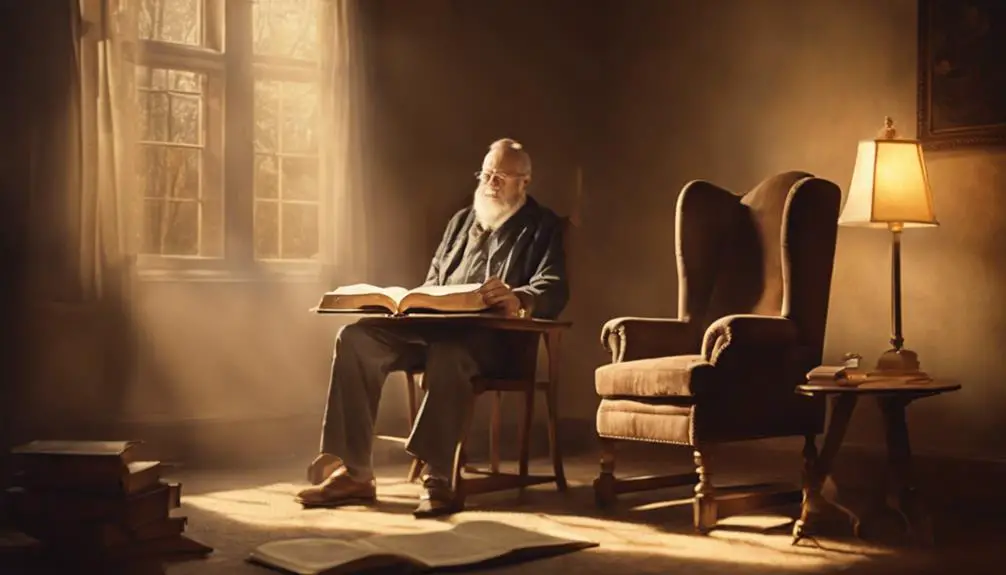
As you assess the father's reaction in the parable, you'll uncover an astounding display of unconditional love and grace. Instead of responding with anger or disappointment, the father welcomes his wayward son with open arms. This is a striking image of God's boundless mercy and forgiveness, a theme central to the Christian faith.
The father's response contrasts starkly with societal norms of the time. In a culture where dishonor was met with severe punishment, the father's forgiving attitude was extraordinary. He doesn't demand repentance or restitution; instead, he celebrates the son's return. His actions underline the central Christian belief that God's love isn't earned but freely given.
Moreover, the father demonstrates an impressive level of patience. He waits for his son's return, suggesting a deep understanding of the son's need for personal growth and independence. This patience is again reflective of God's character, illustrating His willingness to wait for His children to turn back to Him.
Lessons From the Elder Brother
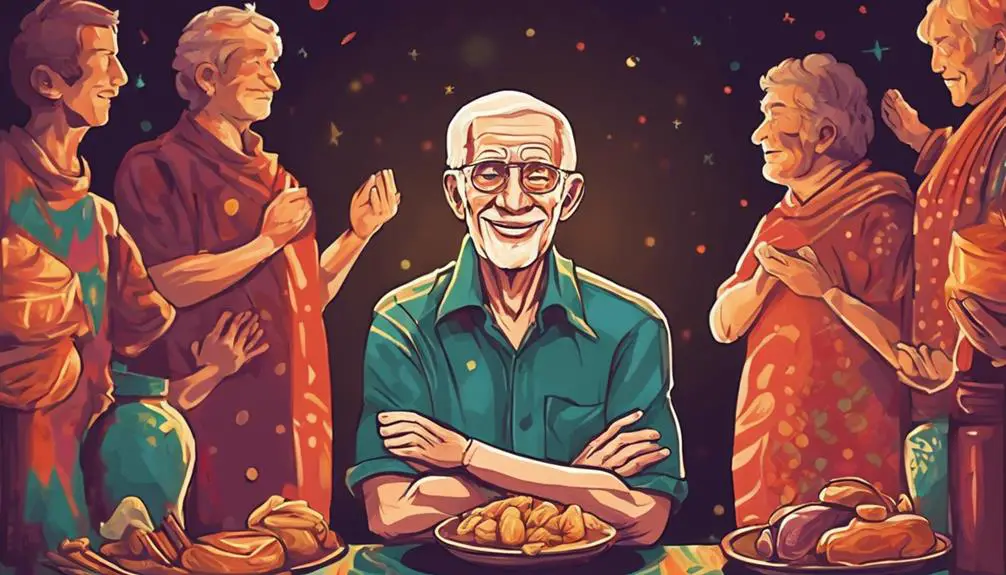
Turning our attention to the elder brother in the parable, we can glean valuable lessons about self-righteousness and the danger of resentment. His reaction to his younger brother's return is telling. Instead of rejoicing, he's filled with bitterness and refuses to join the celebration. You see, he's been obedient and hardworking, but he's also harbored a spirit of self-righteousness, believing he's more deserving of his father's love and blessings.
The elder brother's resentment stems from a misplaced sense of entitlement. He's failed to comprehend the grace and forgiveness his father extends, focusing instead on his own efforts. This parable warns you against falling into a similar mindset. It's not about what you think you deserve but about the grace freely given by God.
Additionally, the elder brother provides a lesson on the perils of harboring resentment. His bitterness not only isolates him from his family but also blinds him to the love his father continually offers. This underscores the importance of letting go of resentment and embracing forgiveness and love. So, you must remember, in your life's journey, not to let self-righteousness or resentment cloud your understanding of God's grace.
Conclusion
In conclusion, the parable of the Prodigal Son (Luke 15:11-32) provides profound insights into human behavior and God's grace. By dissecting the actions of the key characters, we gain a deeper understanding of repentance, forgiveness, and sibling rivalry.
The father's response illustrates God's unconditional love, while the elder brother's reaction exposes self-righteousness. This parable serves as a reminder of God's boundless mercy, challenging us to emulate His forgiveness and love.

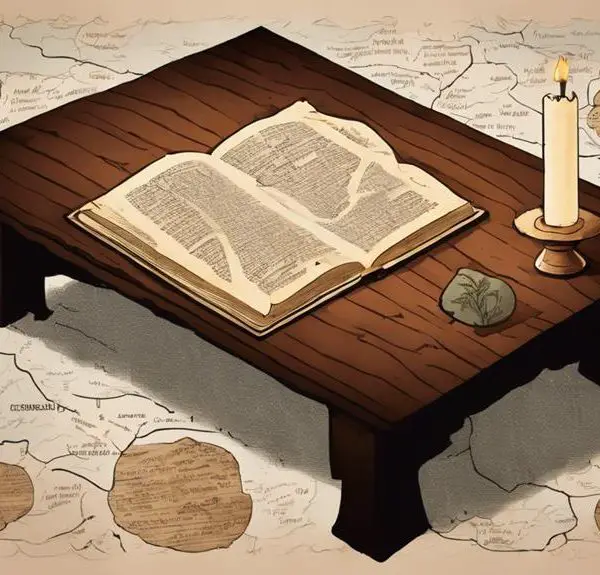
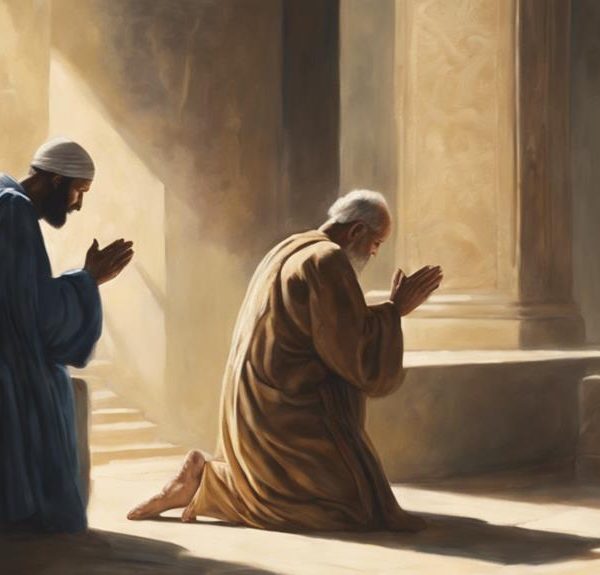
Sign up